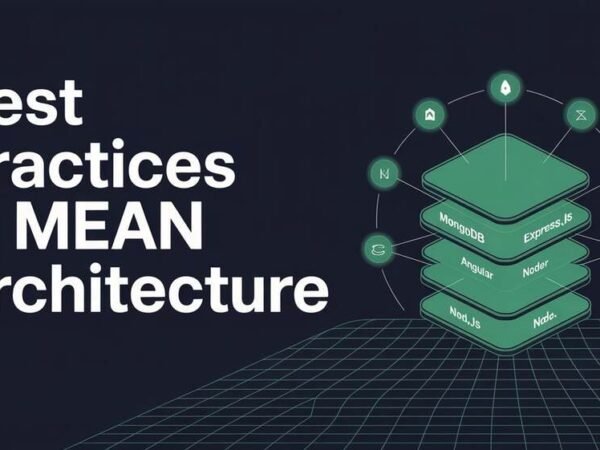ChatGPT has emerged as a revolutionary artificial intelligence tool known for its advanced natural language processing capabilities. This powerful AI tool generates human-like text, assists in coding, and streamlines various aspects of software development.
Traditionally, software developers faced numerous challenges, such as writing repetitive boilerplate code, managing extensive documentation, and ensuring efficient team communication. These tasks often consume valuable time and resources, thus boosting productivity and innovation.
This blog post will help you understand how ChatGPT in software development is transforming and addressing these challenges. It presents various innovative use cases that are reshaping the industry.
The Role of ChatGPT in Software Development
ChatGPT for software engineers is a game-changer, providing intelligent ChatGPT solutions to common challenges. Here is how ChatGPT in software development is playing a pivotal role in this field:
- Automated Code Generation: The chatbot makes for efficient AI coding assistants that can write boilerplate code, generate code snippets, and assist with repetitive coding tasks, allowing developers to focus on more complex and creative aspects of their projects.
- Code Reviews and Debugging: By analyzing code, ChatGPT can perform preliminary reviews, highlight potential bugs, and suggest fixes. This accelerates the debugging process and improves overall code quality.
- Documentation Creation: Maintaining comprehensive and up-to-date documentation can be a daunting task. ChatGPT helps generate API documentation, user manuals, and inline code comments, ensuring that documentation is accurate and complete.
- Facilitating Communication: Clear and efficient communication within development teams is crucial. ChatGPT can draft technical documents, emails, and status updates, ensuring all team members are on the same page.
- Learning and Development Support: ChatGPT for software engineers also offers personalized coding tutorials, answers technical questions, and helps troubleshoot coding issues, reducing the learning curve.
- Testing and QA: ChatGPT can create test cases, generate test scripts, and assist in bug reporting and tracking. This enhances the efficiency of testing and quality assurance processes.
- Project Management: From automating routine project management tasks to optimizing resource allocation and predicting project bottlenecks, ChatGPT streamlines project management, helping teams stay organized and productive.
Famous Use Cases of ChatGPT in Software Development
Take a look at the critical use cases of ChatGPT in software development:
Quality Code Generation and Debugging
Software automation with ChatGPT makes reviewing and debugging, code quality enhancement, and manual code inspection easy.
Automated Code Reviews
ChatGPT can analyze code for adherence to best practices, potential security vulnerabilities, and performance issues. It helps identify areas for optimization, ensuring that the codebase remains clean and efficient.
Several development environments and tools like GitHub’s Copilot have integrated ChatGPT-like functionality to provide real-time code review feedback. These tools automatically suggest improvements and highlight problematic sections of code.
Debugging Assistance
ChatGPT can help developers pinpoint the root cause of bugs and suggest possible solutions. By understanding the context of the code and the error messages, ChatGPT can provide targeted advice on resolving issues.
For example, during a complex project involving multiple interconnected systems, ChatGPT quickly identified a misconfiguration in API calls that was causing intermittent failures, leading to faster resolution and less downtime.
Accelerating Development Cycles
By using ChatGPT in software development, development teams significantly shorten their development cycles, allowing for faster time to market and more agile project management.
Automated Code Generation
ChatGPT excels at generating boilerplate code and handling repetitive tasks, which can significantly accelerate the development process.
Developers can leverage ChatGPT to produce initial code structures and common code snippets by inputting specific requirements or desired functionalities. This saves time and reduces the likelihood of errors that can occur with manual coding.
For example, a developer can ask ChatGPT to generate a RESTful API endpoint or an essential CRUD operation, and the AI will provide a ready-to-use code template.
Prototyping and MVP Development
The rapid pace of innovation often demands quick turnarounds for prototypes and minimum viable products. ChatGPT can assist in swiftly creating these early-stage software versions by generating the foundational code needed to demonstrate core functionalities.
This ability is particularly beneficial for startups looking to validate their ideas without extensive development resources. Several startups have already leveraged ChatGPT to expedite their prototyping phase, allowing them to focus on refining and testing their concepts while the AI handles the initial development.
Chatbot app development companies can gather valuable feedback and iterate more efficiently by quickly producing functional prototypes.
Documentation and Knowledge Sharing
By using ChatGPT in software development for documentation and knowledge sharing, development teams ensure that critical information is always accessible, accurate, and up-to-date. Some of the best Chatbot development companies suggest that documentation and knowledge sharing foster a more efficient and informed work environment.
Auto-Generating Documentation
ChatGPT can assist in generating comprehensive project documentation, including API references, user guides, and technical specifications. ChatGPT can produce accurate and detailed documentation that evolves with the project by analyzing code comments and context.
Utilizing ChatGPT for documentation ensures consistency and up-to-date information across all project documents. This reduces the manual effort required from developers, thus allowing them to focus more on coding and problem-solving.
Knowledge Base Creation
ChatGPT can be used to create and maintain internal knowledge bases, providing quick answers to common questions and issues the development team faces. This includes generating FAQs, troubleshooting guides, and best practice documents.
Several companies have implemented ChatGPT to manage internal knowledge sharing. For example, a tech startup used ChatGPT to build a comprehensive knowledge base for its customer support team, significantly reducing the time spent resolving common inquiries.
Collaborative Coding
Incorporating ChatGPT in software development for collaborative coding and project management enhances teamwork and project efficiency.
Virtual Pair Programming
ChatGPT is a virtual partner for pair programming, a practice where two developers work together on the same code. As a knowledgeable companion, ChatGPT helps identify bugs, suggest improvements, and provide alternative coding approaches in real time.
This virtual pairing enhances code quality and serves as an educational tool, helping developers learn new techniques and best practices.
Benefits of Using ChatGPT for Collaborative Coding Sessions
- Continuous Feedback: Developers receive instant suggestions and corrections, which speeds up the coding process and reduces errors.
- Knowledge Sharing: ChatGPT can provide insights and recommendations based on a vast repository of programming knowledge, benefiting developers of all experience levels.
- Increased Productivity: With ChatGPT handling routine checks and offering solutions, developers can focus more on creative problem-solving and complex tasks.
Project Management Assistance
ChatGPT plays a significant role in project management by handling tasks and deadlines and efficiently communicating with the team. Software automation with ChatGPT can assign tasks based on individual team member’s strengths, track progress, and remind the team of upcoming deadlines.
By integrating with popular project management tools like Jira, Trello, and Asana, ChatGPT ensures that all project activities are well-coordinated and transparent.
Integrations with Popular Project Management Tools
- Task Automation: ChatGPT can create, assign, and update tasks within project management software, ensuring that nothing falls through the cracks.
- Deadline Management: It tracks deadlines, sending reminders and alerts to ensure the timely completion of project milestones.
- Enhanced Communication: By facilitating smooth communication among team members, ChatGPT helps maintain clarity and reduces the chances of miscommunication.
Personalized Learning and Skill Development
Using ChatGPT in software development for personalized learning and skill development, developers can access a tailored educational experience that aligns with their goals and needs.
Tailored Learning Paths
ChatGPT helps create customized learning paths based on an individual developer’s skill level, learning style, and career goals. ChatGPT can recommend specific topics, courses, and projects to focus on by assessing a developer’s current knowledge and identifying gaps.
Additionally, it can track their progress, providing updates and adjustments to the learning plan as necessary. This personalized approach ensures developers receive relevant and practical training, accelerating their skill development.
Interactive Coding Tutorials
ChatGPT acts as a virtual coding mentor, offering real-time feedback on coding exercises. As developers write code, ChatGPT can identify errors, suggest improvements, and explain best practices.
Several platforms have integrated ChatGPT to enhance their learning offerings. For example, online coding schools and boot camps use ChatGPT to create interactive tutorials that guide learners through complex coding tasks with step-by-step instructions and instant feedback.
API Integration
ChatGPT enhances the efficiency and accuracy of API integration in software development by simplifying API documentation and generating code snippets.
Simplifying API Documentation
One of the most tedious tasks for developers is parsing through complex API documentation. ChatGPT streamlines this process by translating intricate and jargon-heavy documentation into easy-to-understand language.
ChatGPT helps developers quickly grasp how to use various APIs by simplifying the instructions and explanations. This reduces the learning curve and speeds up the integration process, making it easier for custom software development service providers to implement third-party services or features into their projects.
ChatGPT’s Role in Assisting Developers with API Usage and Integration
- Clarifying Documentation: ChatGPT can answer specific questions about API methods, parameters, and responses, offering clear and concise explanations.
- Providing Examples: It can generate example requests and responses, helping developers understand how to interact with the API effectively.
- Real-Time Support: ChatGPT can be an on-demand resource for troubleshooting API issues, guiding best practices and common pitfalls.
Generating API Code Snippets
ChatGPT can also generate ready-to-use code snippets for API calls, which is particularly useful for developers new to a specific API or needing to implement functionality quickly.
Case Studies of Developers Using ChatGPT for API Integration
- Startup Integration: A startup utilized ChatGPT to integrate multiple third-party services, significantly reducing its development time. By relying on ChatGPT for code snippets and documentation translation, it launched its product faster and with fewer resources.
- E-commerce Platform: An e-commerce platform used ChatGPT to integrate various payment gateways. Thanks to the simplified documentation and code examples provided by ChatGPT, the developers were able to understand and implement complex payment API functionalities quickly.
User Experience Testing
By integrating ChatGPT into usability testing and user feedback analysis, developers can ensure a superior user experience. These capabilities demonstrate how ChatGPT is transforming the UX testing landscape, making it more efficient, accurate, and insightful.
Automated Usability Testing
ChatGPT can play a pivotal role in automated usability testing by simulating user interactions to identify potential UX issues. Through natural language processing, ChatGPT can mimic how users navigate through an application, providing valuable insights into usability problems.
This process ensures a seamless and intuitive user experience, increasing user satisfaction and engagement.
Benefits of Integrating ChatGPT into UX Testing Workflows
- Efficiency: Automating usability testing with ChatGPT significantly reduces the time and effort required to identify UX issues.
- Accuracy: ChatGPT provides consistent and repeatable testing processes, ensuring that all potential usability problems are uncovered.
- Scalability: ChatGPT can handle large-scale testing across different user scenarios, making it ideal for complex applications with diverse user bases.
User Feedback Analysis
Another powerful application of ChatGPT is analyzing user feedback to identify common pain points and areas for improvement. By processing large volumes of feedback data, ChatGPT can detect patterns and trends that might not be immediately obvious.
This analysis helps developers prioritize changes and enhancements that significantly impact the user experience.
Examples of ChatGPT in Action for UX Feedback Analysis
- E-commerce Platform: An e-commerce platform used ChatGPT to analyze customer reviews and support tickets. The insights gained from this analysis led to improvements in the checkout process, resulting in a smoother and more user-friendly experience.
- Mobile App Development: A mobile app development team integrated ChatGPT to sift through app store reviews and social media comments. The AI identified recurring issues with navigation and performance, which the team addressed to enhance overall user satisfaction.
Conclusion
So, we have seen that ChatGPT is not just an AI bot but a transformative tool reshaping the software development landscape.
The possibilities are vast and exciting, from enhancing code quality to streamlining workflows and fostering better collaboration. Deploying ChatGPT in software development processes can unlock new levels of efficiency and innovation.
As the technology evolves, so will its applications, promising an even brighter future for developers and the software they create. The future of software development is here, and ChatGPT powers it.
Also Read Interesting articles at Disboard.co.uk













